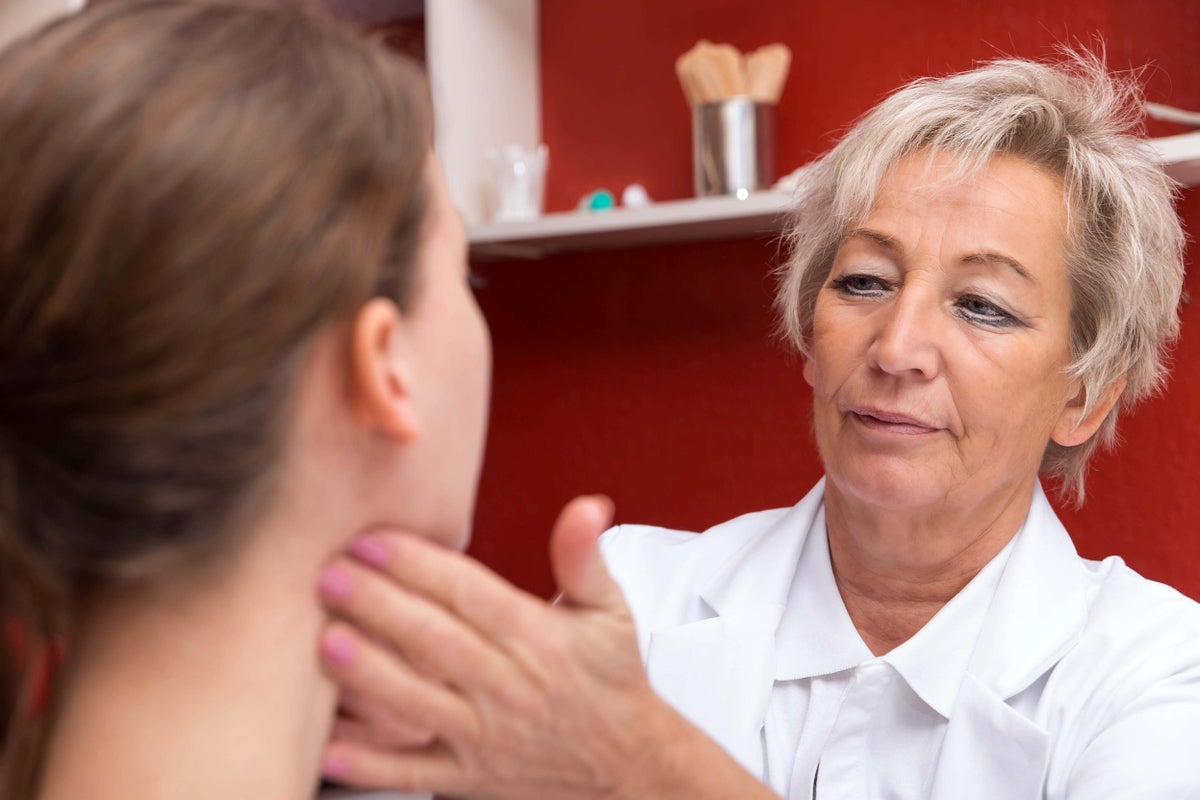
It is understood 24 children have now died from Strep A amidst a growing number of infections in recent weeks.
The infection has hit the NHS during its busiest period time, with pharmacies struggling with localised shortages of antibiotics – leaving parents struggling to find medicine for their sick children.
Dr Adrian Boyle, president of the Royal College of Emergency Medicine, said earlier this month: “There is significant pressure in our paediatric departments, and it’s not just worried parents with Strep, its persistent problems that we’ve got with RSV and flu.
“We think we’re seeing a doubling of paediatric attendances, part of the problem is group A Strep does require some face-to-face consultation.”
But why is Strep A spreading amongst children and can adults contract it? We look into the infection below.
What is Strep A?
Group A streptococcus (GAS) is a common bacteria. It doesn’t always result in illness, but it does cause a number of infections including tonsilitis, pharyngitis, scarlet fever, impetigo and cellulitis. It can be spread by close contact with an infected person, passed on through coughs and sneezes or from a wound.
The most serious infections linked to GAS originate from invasive group A strep, or iGAS. These types of infections occur when bacteria enters parts of the body it is not typically found such as the lungs or bloodstream.
Necrotising fasciitis, necrotising pneumonia and Streptococcal Toxic Shock Syndrome are the most severe forms of iGAS infections. Though they remain uncommon, there has been an increase in cases this year among children under 10.
Can adults get Strep A?
Adults can get Strep A. Scarlet fever is more common in children, but those at increased risk for scarlet fever include parents of school-aged children and those who are often in contact with children.
The Centers for Disease Control and Prevention reports that those exposed to group settings such as schools and care homes are also at increased risk.
The NHS also notes that those at risk of iGAS include people who:
- Are in close contact with someone who has the disease
- Are over the age of 65
- Have diabetes, heart disease or cancer
- Have recently had chickenpox
- Have HIV
- Use some steroids or other intravenous drugs.
UK Health Security Agency data shows that in weeks 37 to 46, there were 0.5 iGAS cases per 100,000 amongst the 15-44 age category. This rate increases to 0.6 for 45 to 64-year-olds, 1.3 for 65 to 74 and 2.4 for 75 and over.
Comparatively, the figures amongst the 1-4 category rest at 2.3 per 100,000. 21 per cent of iGAS infections reported so far this season are in children aged 10 years and under.
As per NHS advice, pregnant women or those having gynaecology treatments are advised to wash their hands before and after going to the toilet, dispose of tissues after use and wash their hands if they have a cough or cold.
Why is Strep A spreading amongst children?
The UK Health Security Agency (UKHSA) is currently investigating reports of an increase in lower respiratory tract Group A Strep infections in children over the past few weeks.
There is no evidence that a new strain is circulating, with UKHSA attributing the increase in cases to high amounts of circulating bacteria.
In a release, it noted there were “2.3 cases per 100,000 children aged 1 to 4 compared to an average of 0.5 in the pre-pandemic seasons (2017 to 2019) and 1.1 cases per 100,000 children aged 5 to 9 compared to the pre-pandemic average of 0.3 (2017 to 2019) at the same time of the year.”
It isn’t clear why the death rate is currently higher amongst children specifically, but scientists speculate that it is the result of high levels of infection combined with low rates during Covid-19 restrictions.
With limited social interaction and protective measures in place, the spread was relatively contained. Children who did not contract Strep A in 2020 or 2021 are now being infected, termed immunity debt.
The UKHSA is urging parents to teach their children the importance of good hand and respiratory hygiene in a bid to stop infections from spreading. Parents should call 999 or go to A&E if their child is having difficulty breathing, their tongue or lips are blue or they will not wake up or stay awake.







